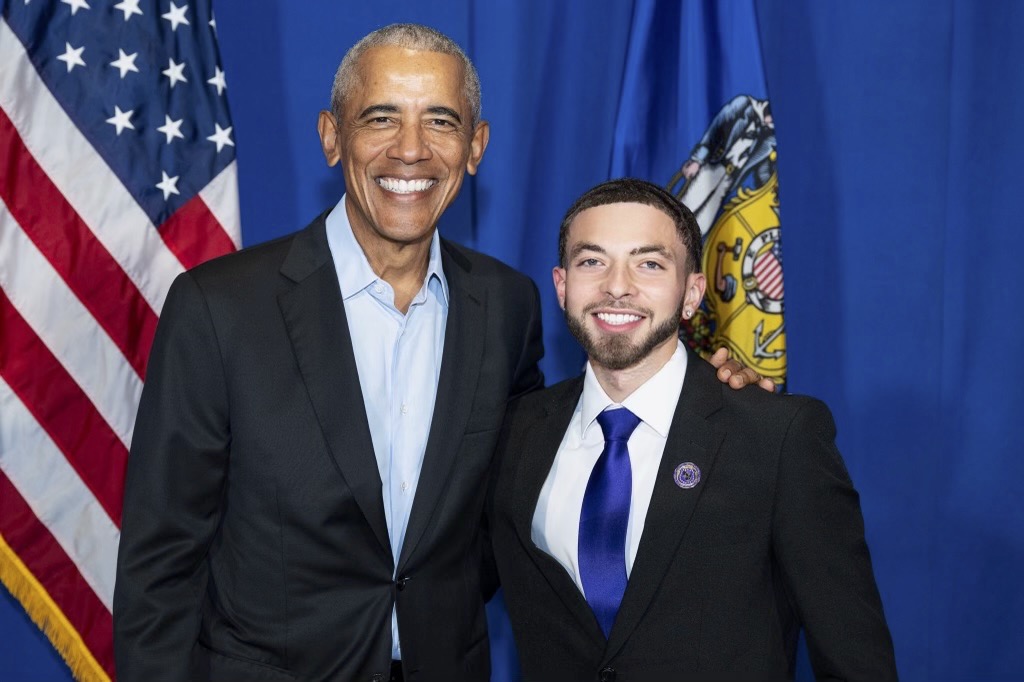 Last week, President Barack Obama did something truly terrible. He didn’t declare war on another country or proclaim support for a widely unpopular issue. It had nothing to do with spending too much time vacationing in the Caribbean, having an affair or participating in a scandal on par with Watergate.
Last week, President Barack Obama did something truly terrible. He didn’t declare war on another country or proclaim support for a widely unpopular issue. It had nothing to do with spending too much time vacationing in the Caribbean, having an affair or participating in a scandal on par with Watergate.
Instead, he said an accomplished woman was attractive.
The woman at the center of this controversy is California Attorney General Kamala Harris, who Obama coined as “by far, the best-looking attorney general in the country” at a fundraiser in San Francisco last Thursday. This statement came after the president listed many of her non-appearance related attributes, such as how “brilliant,” “dedicated,” “tough” and qualified for the position she is.
Oh, dear. He did not. Cue the reporters.
Although the president has apologized to Harris and it’s been stated multiple times by various sources that Obama and Harris are “good friends,” it hasn’t calmed the media storm that has transpired since then.
The issue at hand, however, is not if the president is a chauvinist or if it’s acceptable and appropriate to call a public figure good-looking. Instead, it’s about the fact that incidents such as this – when a female’s appearance is emphasized over, or along with, her accomplishments – turn women against each other.
A common argument is that comments like the president’s distract from a woman’s achievements, and thus are not only a cause, but an effect of society’s extreme focus on appearance and what constitutes femininity.
Although the debate over such comments is an entirely different story, society’s reaction to such statements is often more “distracting” than the comments themselves. Most of the time, this reaction is not a collective response, but rather divided and filled with outrage toward the opposition. Seeing that the strong reaction often comes from women, a battle of female viewpoints ensues.
This indirect reinforcement of society’s focus on appearance is self-destructive to some women’s goal of emphasizing accomplishments without regard to looks when it comes to success.
Perhaps there should be no reaction, and women should simply praise each other regardless of whether appearance is involved or not.
In the 48 hours before I began writing this column, two incredible female icons – Margaret Thatcher and Lilly Pulitzer – have passed away. Thatcher was Britain’s first female prime minister and was nicknamed the “Iron Lady” for her tough personal and political characteristics and actions. Fashion designer Pulitzer gained her success by creating clothing, primarily dresses, with bright and bold patterns.
Thatcher was seen as a woman who aligned more with stereotypically masculine characteristics, whereas Pulitzer is in many ways the epitome of the social construction that is femininity.
The two women were completely different in their accomplishments and approaches to power and independence, but both still largely impacted others. Some saw them as role models, and others despised them. No matter their roles or how they gained success, though, they both have a lot for which to be remembered.
Although Thatcher and Pulitzer’s successes appeal to very different kinds of women, it doesn’t make one type of woman better than the other. This should be remembered when it comes to incidents such as Obama’s comment about Harris’ appearance and the diverse perspectives that emerge in the aftermath.
Regardless of whether one believes the president’s comment was sexist or merely a compliment, the reaction on both sides is unnecessary. Such a reaction is more distracting than the initial comment, especially when it divides women rather than unites them.
In a society where we so often blame men for making such statements and exhibiting certain ways of thought toward females, perhaps women and our reactions to such incidents are part of the problem as well.
—
Brooke Goodman is a senior studying political science and journalism. Email brooke.goodman@marquette.edu with anything you’d like her to write about.





